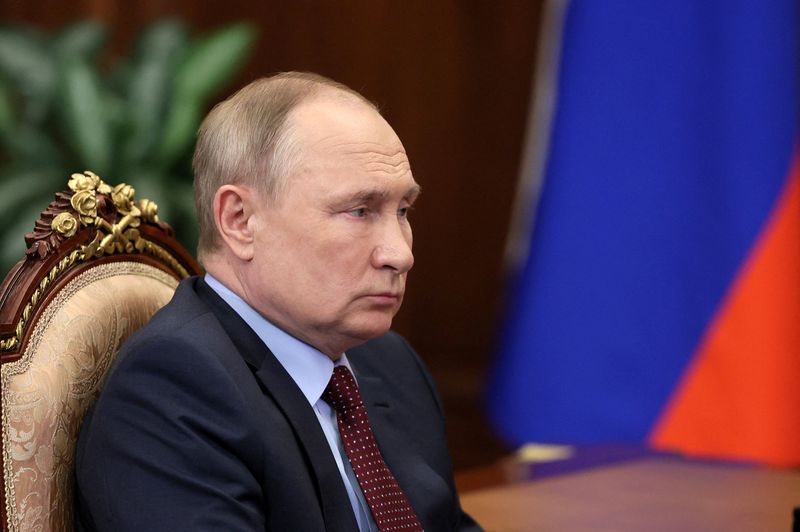(Reuters) -Russia has responded to sanctions over its invasion of Ukraine with a range of measures to shore up its economic defences and retaliate against Western restrictions that are crippling its economy.
Russia calls its actions in Ukraine a “special operation” that it says is not designed to occupy territory but to destroy its southern neighbour’s military capabilities and capture what it regards as dangerous nationalists.
Below are some of the key steps Moscow has taken.
CENTRAL BANK MOVES
Russia’s central bank has more than doubled its main lending rate to 20% and provided extra liquidity to banks. It intervened on the foreign currency market to support the rouble, before sanctions limited its ability to do so.
The Bank of Russia also banned Russian brokers from selling securities held by foreigners, coupon payments for foreign investors holding rouble-denominated sovereign debt and dividends to overseas shareholders in Russian companies.
HALT FERTILISER EXPORTS
The trade and industry ministry recommended on March 4 that Russian fertiliser producers halt exports.
“Taking into account the current situation with foreign logistics operators and the risks associated with it, the ministry had to recommend Russian producers temporarily suspend export shipments of Russian fertilisers until carriers resume (regular) work and provide guarantees that Russian fertiliser exports will be completed in full.”
BAN ON ROUBLE LOANS TO CERTAIN FOREIGNERS
Rouble loans and credits to “persons of foreign states who commit unfriendly actions” are banned, except when prohibited by Russian law.
CONVERSION ORDER
A decree by President Vladimir Putin ordered exporting companies, which include some of the world’s biggest energy producers, to sell 80% of their foreign currency revenues to buttress the rouble.
CURBING ASSET SALES
Prime Minister Mikhail Mishustin said Russia would temporarily stop foreign investors from selling Russian assets to ensure they take a considered decision, not one driven by political pressure, but did not elaborate.
RAINY-DAY FUND
Russia will use money from a rainy-day fund to limit borrowing as sanctions made it more costly, Finance Minister Anton Siluanov said. The National Wealth Fund stood at $175 billion as of Feb. 1.
A government decree also showed the fund would spend up to 1 trillion roubles ($9.45 billion) to buy shares in Russian companies.
TAX RELIEF, TECH SUPPORT
Prime Minister Mishustin said Russia would provide additional support to technology companies and may tweak tax arrangements for businesses and households affected by sanctions.
The government will also allocate additional funds to small and medium-sized businesses via a subsidised lending scheme.
AIRSPACE CLOSURES
Russia has banned airlines from countries including Britain, Bulgaria, Poland and the Czech Republic from its airspace after similar moves by those countries.
(Reporting by Reuters; Editing by Sandra Maler, William Maclean)




















